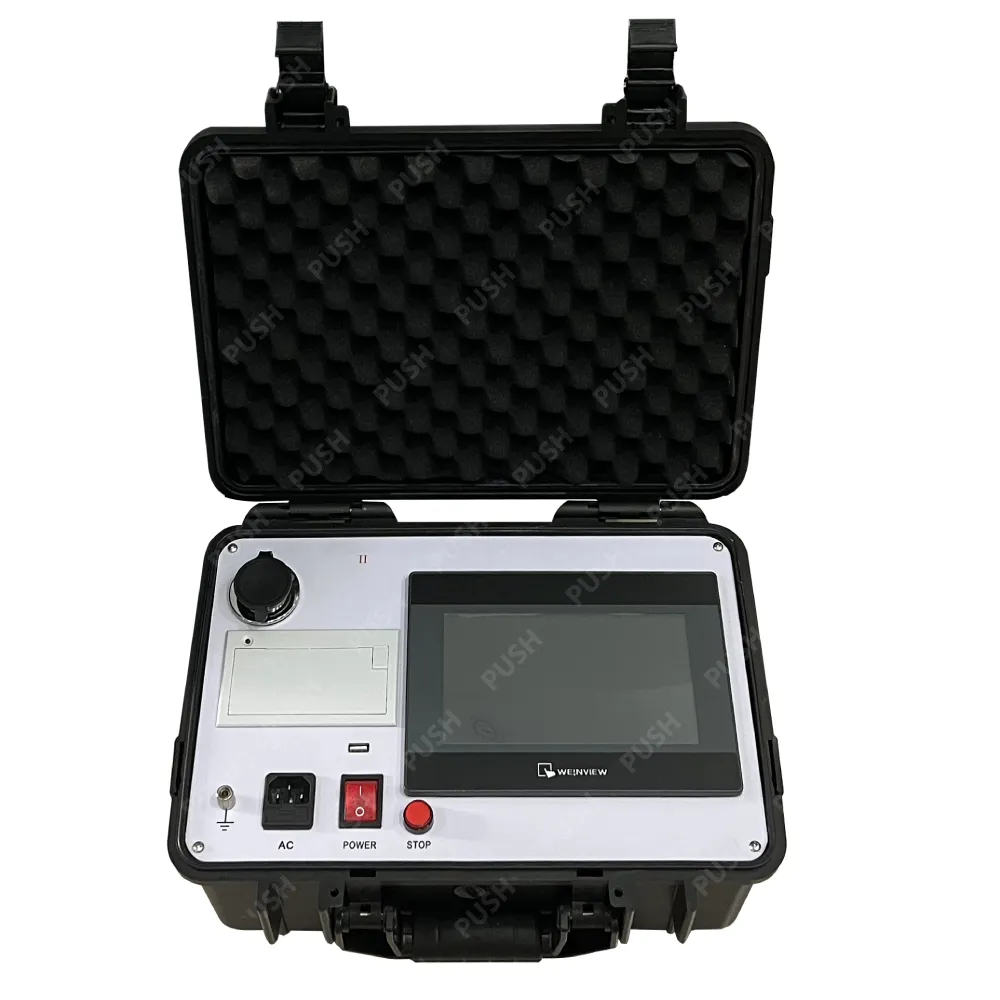 English
English


dielectric strength test of insulating oil
Dielectric Strength Test of Insulating Oil
The dielectric strength test of insulating oil is a critical evaluation used to determine the electrical insulating properties of oil, particularly in high voltage electrical equipment such as transformers and capacitors
. Insulating oil serves as both a coolant and an insulator, and its ability to resist electrical breakdown is paramount for ensuring the reliable operation of electrical systems.Dielectric strength, defined as the maximum electric field that a material can withstand without experiencing failure, is measured in kilovolts per millimeter (kV/mm) or volts per meter (V/m). In practical terms, a higher dielectric strength means that the insulating oil can endure greater voltage levels before breaking down. This property is essential as any breakdown can lead to short circuits, equipment failure, and potentially hazardous situations.
The testing process typically involves using a standardized apparatus to apply an increasing voltage to a sample of the insulating oil until breakdown occurs. The American Society for Testing and Materials (ASTM) specifies guidelines for conducting these tests, ensuring consistency and reliability in results. The most common method for testing dielectric strength is the sphere gap method or the oil cup test, where the oil is placed between electrodes, and the voltage is raised progressively.
dielectric strength test of insulating oil

Factors that influence the dielectric strength of insulating oil include its chemical composition, moisture content, temperature, and the presence of impurities or particulates. For instance, water contamination significantly lowers the dielectric strength, making it vital for utilities and maintenance teams to regularly monitor and maintain the quality of insulating oil in their equipment.
Regular testing of insulating oil not only helps predict the lifespan of electrical equipment but also assists in timely maintenance decisions. If the dielectric strength of the oil drops below acceptable levels, it is crucial to either replace the oil or treat it to restore its insulating properties. Additionally, the oil's performance can be affected by its age and exposure to thermal and oxidative degradation, making periodic testing a vital component of asset management strategies in electrical utilities.
In summary, the dielectric strength test of insulating oil is an indispensable tool in the electrical engineering field. By ensuring that insulating oils meet specified dielectric strength criteria, organizations can prolong the life of their equipment, minimize unplanned outages, and maintain safe operational standards. As technology advances, continual improvements in testing methods and oil formulations are expected, further enhancing the performance and reliability of insulating oils in electrical applications.
-
Differences between open cup flash point tester and closed cup flash point testerNewsOct.31,2024
-
The Reliable Load Tap ChangerNewsOct.23,2024
-
The Essential Guide to Hipot TestersNewsOct.23,2024
-
The Digital Insulation TesterNewsOct.23,2024
-
The Best Earth Loop Impedance Tester for SaleNewsOct.23,2024
-
Tan Delta Tester--The Essential Tool for Electrical Insulation TestingNewsOct.23,2024





